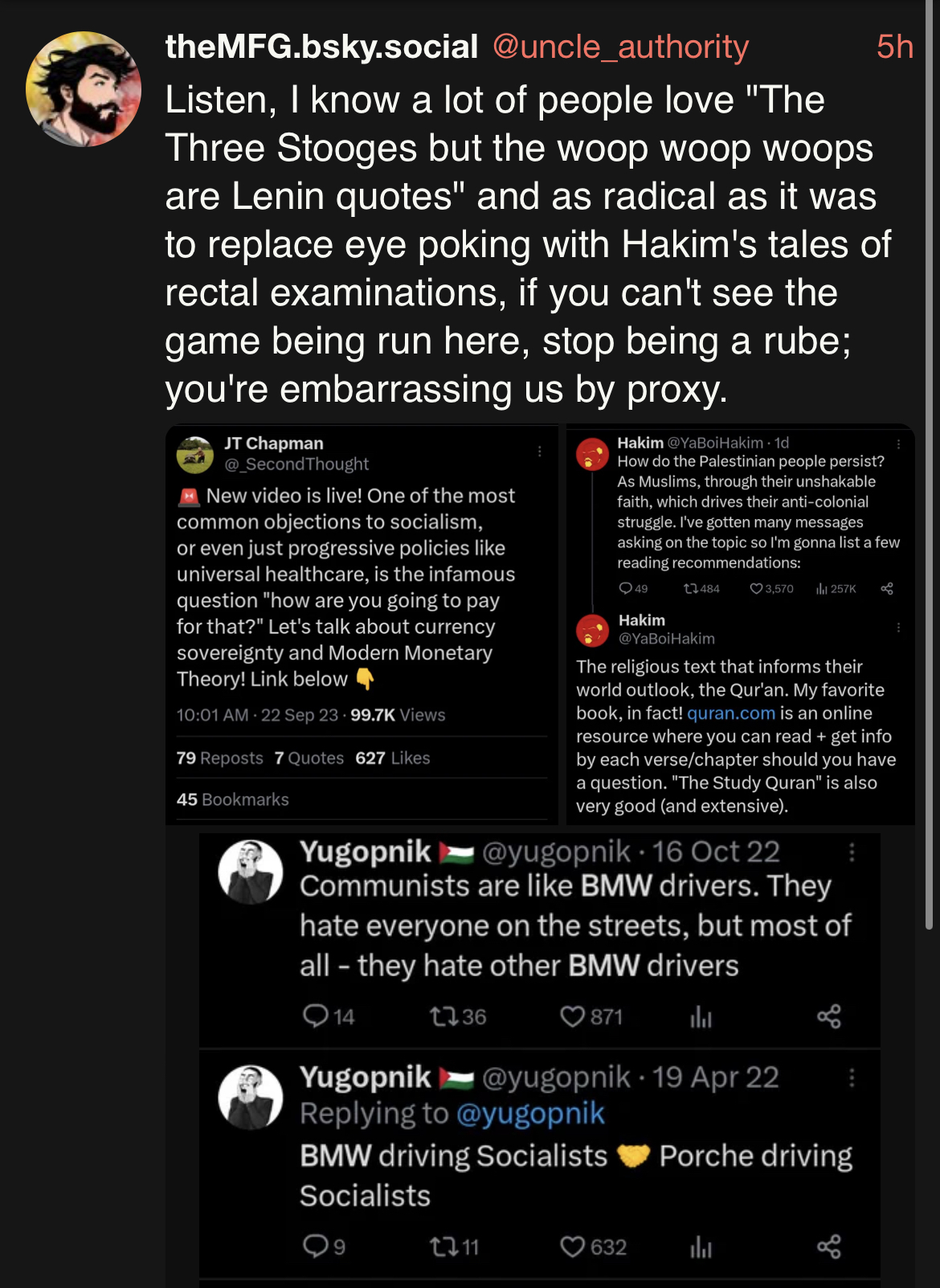view the rest of the comments
the_dunk_tank
It's the dunk tank.
This is where you come to post big-brained hot takes by chuds, libs, or even fellow leftists, and tear them to itty-bitty pieces with precision dunkstrikes.
Rule 1: All posts must include links to the subject matter, and no identifying information should be redacted.
Rule 2: If your source is a reactionary website, please use archive.is instead of linking directly.
Rule 3: No sectarianism.
Rule 4: TERF/SWERFs Not Welcome
Rule 5: No ableism of any kind (that includes stuff like libt*rd)
Rule 6: Do not post fellow hexbears.
Rule 7: Do not individually target other instances' admins or moderators.
Rule 8: The subject of a post cannot be low hanging fruit, that is comments/posts made by a private person that have low amount of upvotes/likes/views. Comments/Posts made on other instances that are accessible from hexbear are an exception to this. Posts that do not meet this requirement can be posted to !shitreactionariessay@lemmygrad.ml
Rule 9: if you post ironic rage bait im going to make a personal visit to your house to make sure you never make this mistake again


mmt even strictly as an economic theory separated from macroeconomic policy isn't really descended from marx, my understanding is that there was maybe a little bit of interplay way back when liberal economists weren't sure yet that fiat could work as a money commodity but after that all of these related ideas like role of the state in guaranteeing public welfare with monetary policy and the idea of inflation as a substitution for taxation flowered independently within bourgeois economics, and that's what mmt as formulated today draws on. it's not surprising, economics is the priesthood of capital; financial capital is ascendent but monetarism doesn't work to check the destructive instability of free markets, the inefficiencies of specie and taxation are a constraint on growth, and mmt's explanations in terms of circulation suggest solutions that avoid challenging relations of production. it's not contrived, this is the actual social basis for the development of the theory. you can see premonitions of this in marx's time, proudhon argued against liberal monetary policy from a petty bourgeois perspective (i.e. while maintaining private production) but marx insisted that he and the liberal economists were all missing the real point that production ultimately gives rise to money and not the other way around:
production begets money which feeds back to further production, but production is the primary regulator. you can try to find insights in mmt if you want to flesh out the money->production leg of the dialectical loop - hudson leans (way too) hard into this and graeber flips the precedence entirely upside down - but since mmt as such was developed to exist as a myopic slice of "the question in its pure form" I think it's fair to say that it's non-marxist